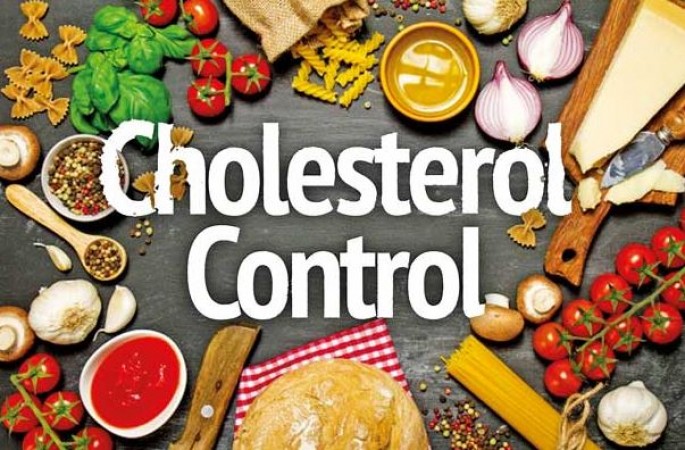
In today's fast-paced lifestyle, taking care of heart health is crucial. The number of people grappling with cholesterol-related issues is rapidly increasing. In this article, we will discuss the items you can incorporate into your diet to help maintain heart health and keep cardiovascular problems at bay.
Whole Grains:
Grains such as pearl millet (bajra), steel-cut or rolled oats, quinoa, and brown rice are rich in soluble fiber. This type of fiber is known to reduce cholesterol levels. Additionally, whole grains have a low glycemic index, which helps stabilize blood sugar levels and reduces the risk of type 2 diabetes.
Legumes:
Lentils, chickpeas, beans, and peas are excellent sources of plant-based protein, dietary fiber, and essential minerals. They not only contain minimal saturated fat but also actively help in lowering cholesterol levels.
Nuts and Seeds:
Almonds, walnuts, peanuts, flaxseeds, chia seeds, and hemp seeds are packed with heart-healthy fats, fiber, and plant-based proteins. They provide a nutritional powerhouse of HDL (good) cholesterol while controlling LDL (bad) cholesterol levels.
Leafy Greens:
Greens like spinach, moringa leaves, dill, and kale are rich in vitamins, minerals, and fiber. They offer antioxidants like vitamin K, which is crucial for blood clot management, and nitrates, which help reduce blood pressure. Likewise, cruciferous vegetables such as broccoli, cauliflower, and Brussels sprouts contain fiber that assists in lowering LDL cholesterol.
Fruits:
Certainly, here's a more detailed explanation of the point about fruits:
Fruits are a vital component of a heart-healthy diet due to their rich nutritional content and numerous health benefits. Some specific fruits, such as blueberries, strawberries, raspberries, and pomegranates, along with others like grapes, apricots, and plums, offer significant advantages for cardiovascular health.
Antioxidant Power: These fruits are renowned for their high levels of antioxidants, particularly vitamins C and E, as well as various phytonutrients. Antioxidants help combat oxidative stress and inflammation in the body, both of which are linked to heart-related ailments.
Cholesterol Management: The antioxidants in these fruits play a crucial role in cholesterol management. They help prevent the oxidation of LDL (low-density lipoprotein) cholesterol, which is a key factor in the formation of plaque in the arteries. By reducing LDL oxidation, these fruits contribute to maintaining healthy cholesterol levels.
Blood Pressure Regulation: Many of these fruits contain potassium, a mineral that is known to help regulate blood pressure. Potassium helps balance the effects of sodium in the body, which can, in turn, reduce the risk of hypertension and its associated cardiovascular risks.
Heart Disease Prevention: Regular consumption of these fruits has been associated with a lower risk of heart disease. The combination of antioxidants, dietary fiber, and other heart-healthy compounds in these fruits supports overall cardiovascular well-being.
Digestive Health: Fruits are a great source of dietary fiber, which is essential for digestive health. Fiber aids in regulating bowel movements, preventing constipation, and promoting a healthy gut microbiome. A healthy gut can indirectly contribute to heart health by influencing the absorption of nutrients and regulating inflammation in the body.
Omega-3 Fatty Acids:
Including omega-3 fatty acids in your daily diet helps reduce triglyceride levels and inflammation. You can obtain omega-3s from sources like walnuts, flaxseeds, chia seeds, hemp seeds, beans, and edamame.
Extra Virgin Olive Oil:
Extra virgin olive oil and both green and black olives contribute to reducing LDL cholesterol and inflammation. They are an essential component of the heart-healthy Mediterranean diet.
Green Tea:
Green tea contains catechins, which are potent antioxidants. Regular consumption of green tea may aid in lowering LDL cholesterol levels, contributing to heart health.
Dark Chocolate:
Dark chocolate with a minimum of 70% cocoa content is beneficial for heart health. It contains flavonoids that help reduce inflammation and promote overall cardiovascular well-being.
Incorporating these heart-healthy foods into your daily diet can be a proactive step in maintaining your cardiovascular health and managing cholesterol levels. However, it's essential to maintain a balanced diet and engage in regular physical activity to further support your heart's well-being. Remember, a holistic approach to health is key in today's fast-paced lifestyle.
World Egg Day 2023 Celebrating the Incredible Egg on October 13
The Satvik Thali at Courtyard Marriott for Navratri: Wholesome, Local, and Sattvik
Safeguarding Your Child's Vision: A Full Guide to Screening Strategies for Children's Eye Health